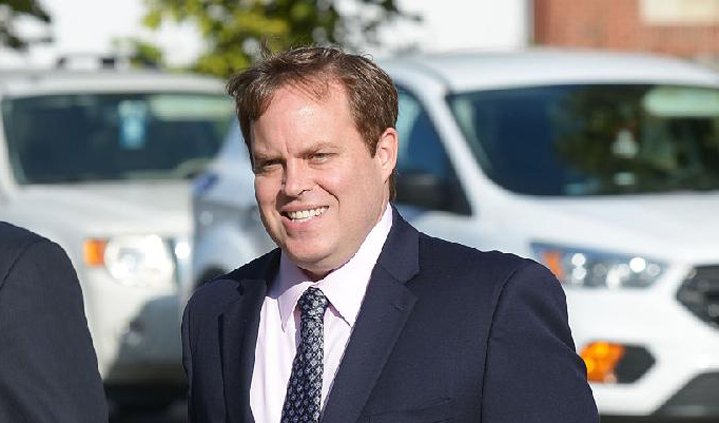FAYETTEVILLE -- Nothing wiped from an FBI agent's laptop would have kept former state Sen. Jon Woods from being convicted on corruption charges, the government argues in an appeal brief made public Wednesday.
The government based its case on bank, business and legislative records along with the defendants' emails and text messages, the brief says.
Nothing significant to the case originated from the laptop assigned to Special Agent Robert Cessario of Bentonville, the brief says. The evidence also shows all the files on the laptop requested by defense attorneys were turned over, the government argues.
Defense attorneys in the case didn't return requests for comment. Woods and his co-defendants, Randell Shelton Jr. and Oren Paris III, are appealing their convictions to the U.S. 8th Circuit Court of Appeals.
The convictions involve kickbacks from state grants to Ecclesia College in Springdale. Paris was president of Ecclesia. Shelton of Kemp, Texas, was convicted of 12 fraud-related counts in the same trial as Woods. Woods was convicted of the same counts and also of one count of money laundering and two additional counts of fraud.
Paris pleaded guilty in the scheme to one conspiracy count. Paris reserved his right to appeal on the basis of FBI misconduct. His appeal also is pending before the 8th Circuit.
Their appeals argue the government should have dismissed charges after discovering Cessario wiped his assigned laptop's hard drive after being ordered to turn it over for examination. The appeals also raise objections to jury instructions and other court proceedings.
"The bottom line is this: agent Cessario committed intentional misconduct when he wiped the laptop, but there is no evidence in the record to show, and no good reason to believe, that he destroyed any information that is material to the charges and defenses in this case but not already in the defendants' possession," the brief says, quoting a ruling from the trial judge.
Cessario's conduct is still under investigation by the FBI's Office of Inspector General, bureau records show.
Wednesday's brief also reveals defense attorneys received 13 hours out of 65 hours of secret recordings then-state Rep. Micah Neal took. Those recordings led to the discovery that Cessario wiped his computer.
Woods and Shelton were convicted by a jury in U.S. District Court in Fayetteville on May 3, 2018. Woods and co-conspirator Neal, of Springdale, steered state grants to the college in 2013 and 2014.
Paris had hired Shelton as a consultant. Shelton passed a portion of those consulting fees along to Woods and Neal as kickbacks.
Woods is serving an 18-year federal prison sentence. Shelton is serving a six-year sentence. Paris is serving three years. Neal served one year of house arrest on one count of conspiracy.
Metro on 09/19/2019
